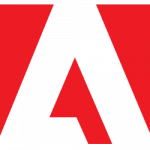 This month we’ve got a new version of Reader from Adobe, along with the usual heap of updates affecting Microsoft software.
This month we’ve got a new version of Reader from Adobe, along with the usual heap of updates affecting Microsoft software.
Analysis of Microsoft’s Security Update Guide for December shows that there are thirty-two updates in all, affecting Internet Explorer 9 through 11; Office 365, 2013, 2016, and 2019; Visual Studio; Windows 7, 8.1, and 10; and Windows Server 2008, 2012, 2016 and 2019. Thirty-seven vulnerabilities (CVEs) are addressed, of which seven are flagged as having Critical severity.
The easiest way to install Microsoft updates is via the Windows Update Control Panel (prior to Windows 10) or Settings > Update & Security on Windows 10.
 Adobe released updates for several of its software products on Tuesday, but the only one likely to be installed on your computers is the ubiquitous Acrobat Reader DC, Adobe’s free PDF file viewer.
Adobe released updates for several of its software products on Tuesday, but the only one likely to be installed on your computers is the ubiquitous Acrobat Reader DC, Adobe’s free PDF file viewer.
A new version of Acrobat Reader DC, 2019.021.20058, addresses at least twenty-one vulnerabilities in previous versions.
Recent versions of Reader seem to keep themselves updated, but if you use Reader to view PDF files from dubious sources, you should definitely check whether your Reader is up to date. Do that by running it, then choosing Check for Updates... from the Help menu.
About CVEs
I usually refer to security bugs as vulnerabilities. There’s another term that I sometimes use (see above): CVE. That’s an abbreviation for Common Vulnerabilities and Exposures. If you’d like to know more, there’s a helpful post about CVEs over on the SecurityTrails web site. Here’s a quote:
CVE was launched in 1999 by the MITRE Corporation, a nonprofit sponsored by the National Cyber Security Division, or NCSD. When a researcher or a company discovers a new vulnerability or an exposure, they add them to the CVE list so other organizations can leverage this data and protect their systems.
It’s a worthwhile read, even for non-technical folks.
 boot13
boot13